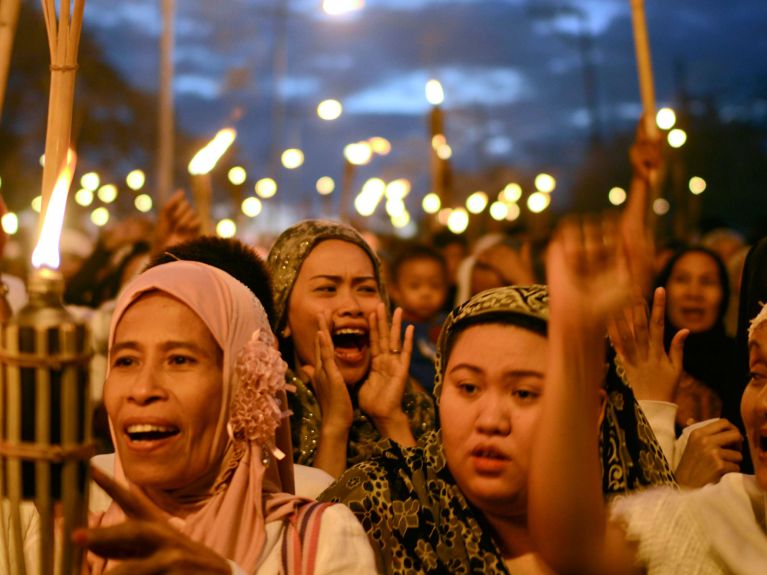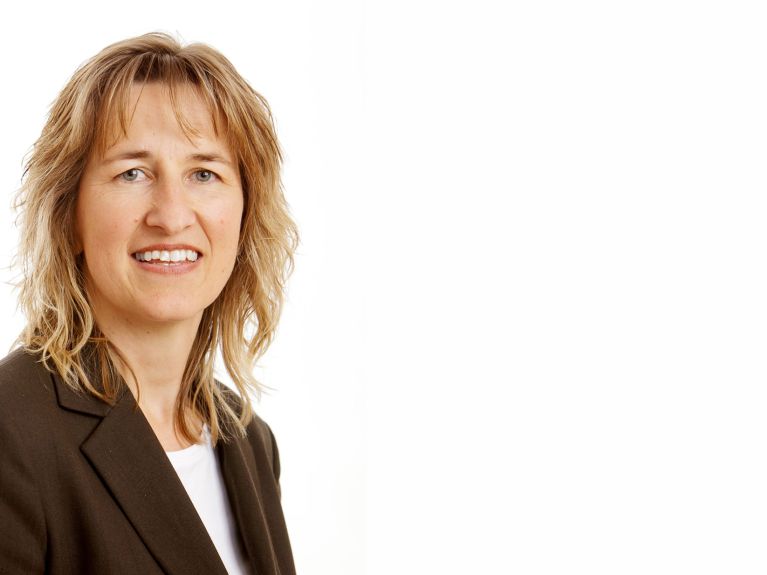No peace without women
The peace researcher Simone Wisotzki explains why equal rights make the world safer.

In wars and conflicts women are often perceived only as victims. This perspective obscures the view that women can exert a great deal of influence to surmount violence. We talked to Simone Wisotzki about this. She is a member of the board of the Leibniz-Institut Hessian Foundation for Peace and Conflict Research (PRIF) in Frankfurt am Main. She calls UN Resolution 1325 “Women, Peace and Security” a milestone, but also says that the road to greater security is often a stony one.

Mrs Wisotzki, why must women have a say when it comes to war and peace?
Studies show that there are fewer internal and inter-state conflicts in societies with gender equality. When women take part in peace negotiations, the chance for a stable peace treaty increases. This has been achieved in Rwanda. The country now has one of the highest female quotas in parliament.
When women take part in peace negotiations, the chance for a stable peace treaty increases.
An example from Liberia is documented in the film Pray the Devil Back to Hell: the opposing sides in the civil war negotiated and negotiated, without result. Then women gathered round the negotiating room and signalled to the men: “We’re not leaving until you have come to an agreement”. This is how the women helped bring about the solution to the conflict.
What difficulties are there?
In peace negotiations, women are still under-represented. It’s difficult to explain to men why women need to be included in disarmament and reconstruction.
Dieses YouTube-Video kann in einem neuen Tab abgespielt werden
YouTube öffnenThird party content
We use YouTube to embed content that may collect data about your activity. Please review the details and accept the service to see this content.
Open consent formHow do you get women at the negotiating table?
By making contacts with local civil society or women’s groups that have been organized outside the country. In UN peacekeeping there are gender advisers who establish such contacts. It’s more difficult to reach the grassroots movements.
An example of success is the peace process in Mindanao, Philippines, where Miriam Coronel Ferrer negotiated a peace treaty with the rebel group MILF in 2014. Local women’s organizations systematically took art in and remain responsible for the implementation of the peace agreement.
The decisive factor is sustainability. The international community must also provide long-term funding and systematically anchor gender equality in all areas of reconstruction. The actual situation, unfortunately, looks very different from this.
Interview: Tanja Zech
More on the subject
Women, Peace and Security Focal Points Network
Newsletter #UpdateGermany: You would like to receive regular information about Germany? Subscribe here to:

